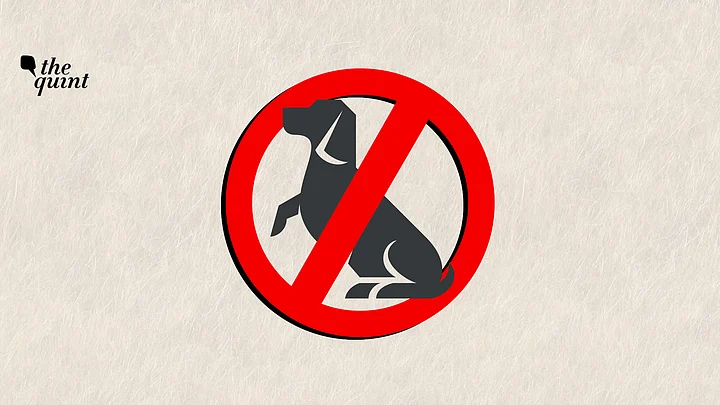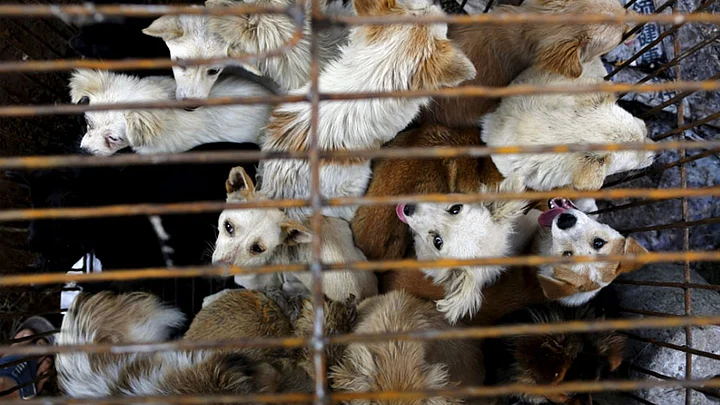The Nagaland government has prohibited the import of dogs and sale of dog meat, following objections from animal rights activists. Dog meat is considered a delicacy in parts of Nagaland, Manipur and Mizoram.
A section of liberals took to Twitter, hailing the Nagaland government’s move. But what was missing from the entire debate was the question of the right to choose one’s food.
“The right to choose one’s diet is an aspect of one’s right to privacy, which, in turn, is an aspect of one’s right to live life the way he wishes and thereby live a life of dignity,” Haresh Jagtiani, a Mumbai lawyer, had written in a piece on the Maharashtra’s beef ban row.
Fuelling The ‘Us Vs Them’ Debate
What is worrying is that a large number of so-called liberals from mainland India tend to take a conservative posture when it comes to the Northeast, one of the most ethnically diverse regions in the country.
And this stance primarily stems from their inability to understand the complexities of the region which is shaped by its unique history, geography, food habits, cultural practices, customs and rituals.
This became evident when many liberals mixed up the issue of the National Register of Citizens (NRC) in Assam with that of the Citizenship (Amendment) Act – two contradictory legal concepts. The NRC/CAA debate thus ended up portraying the indigenous people of Assam and the rest of the Northeast in poor light, thanks to an ill-informed campaign by some vested interests.
A similar trend is visible in the latest controversy surrounding dog meat, where a section of liberals has called for a ban on a certain culture’s food as they find it objectionable, a tendency that borders on food ‘fascism’. This is a disturbing trend which could fuel the ‘Us Vs Them’ mindset, and create tension between communities.
- What is worrying is that a large number of so-called liberals from mainland India tend to take a conservative posture when it comes to the Northeast, one of the most ethnically diverse regions in the country.
- And this stance primarily stems from their inability to understand the complexities of the region which is shaped by its unique history, geography, food habits, cultural practices, customs and rituals.
- Even if the Nagaland legislative assembly has the power to make changes in these norms, the implementation of a ban on any traditional practice is likely to face hurdles.
- What Nagaland government has done is nothing but a knee-jerk reaction, as there is no such law that prohibits consumption of dog meat.
How Will Dog Meat Ban Get Implemented, If At All?
Among the organisations that had campaigned for the ban on dog meat in Nagaland was a Delhi-based non-profit – the Federation of Indian Animal Protection Organisations (FIAPO).
“Today (2 July), we have submitted a fresh appeal to the Government of Nagaland to take immediate actions to implement a ban on the sale, smuggling and consumption of dog meat in the state, and ensure the enforcement of stringent animal welfare laws,” a statement by FIAPO said.
Many of those supporting this ban are perhaps unaware that under Article 371 (A) of the Constitution, Nagaland enjoys exemptions from Indian laws with regard to ‘religious and social practices of the Nagas’, ‘Naga customary law and procedure’, among others. Even if the Nagaland legislative assembly has the power to make changes in these norms, the implementation of a ban on any traditional practice is likely to face hurdles.
Obviously, local communities are furious in Nagaland, who see this ban as an imposition on their food habits.
“When it comes to eating habits for any community, it is not good to impose such rules,” Chuba Ozukum, former president of the Naga Hoho, Nagaland’s apex tribal body, was quoted as saying by a daily.
“The main question is: how is the government planning to implement this, because those who have been consuming dog meat have been doing so since their forefathers’ time, and they will not necessarily abide by these new rules,” Ozukum added.
What Nagaland government has done is nothing but a knee-jerk reaction, as there is no such law that prohibits consumption of dog meat. In its notification banning dog meat, the state government has cited meat and meat product regulations laid down by the Food Safety and Standards Authority of India (FSSAI).
Much More to Northeast India Than Dog Meat
Even after 73 years of independence, the mainstream narrative about India’s Northeast continues to be informed by notions such as ‘exotic land’ and ‘strange food habits’, thanks to widely-consumed Bollywood films and other mass media which have distorted the image of the region over the years.
As a result, a communication gap still exists between the Northeast and the rest of India.
Even in the media, Kashmir gets more attention than the Northeast, though both share a few common problems such as militancy and lack of development. Social media trends also show how Indians discuss, debate and share much more information about Haryana, Uttar Pradesh and Tamil Nadu than Assam, Nagaland and Manipur.
For instance, netizens outside the Northeast hardly share any thoughts on the flood-hit people of Assam, nor do they seem bothered about the extension of the Armed Forces (Special Powers) Act or AFSPA, seen as the most draconian law in post-Independence India, in Nagaland for six more months.
(Jayanta Kalita is a senior journalist and author based in Delhi. He writes on issues related to India’s Northeast. This is an opinion piece and the views expressed are the author’s own. The Quint neither endorses nor is responsible for them.)
(At The Quint, we question everything. Play an active role in shaping our journalism by becoming a member today.)


